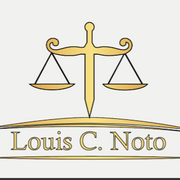
Probate encompasses the legal processes and procedures that must be followed to resolve the estate of a deceased person. Like all states, New York has its own probate laws, and if you've recently lost a loved one, it may help to have a basic understanding of how these laws work. Learn more about the probate process in New York State with this helpful guide.
Types of Proceedings
There are two types of probate proceedings in New York State. If a person dies without a will, they leave what is called an intestate estate. This means that they did not appoint an executor or name heirs. In this situation, an administrative proceeding is held to name an executor to oversee the resolution of the estate.
If the person dies with a will, they have already appointed an executor and named their beneficiaries. The executor starts the probate proceeding by filing a petition along with the deceased's will at Surrogate's Court. Here, the court verifies that the will is valid and legally authorizes the executor to carry out the designated functions.
Responsibilities of the Executor
 Probate functions are handled by the executor, whether they were appointed by the courts or by the decedent. New York State probate laws grant the executor the power to locate, collect, and distribute the deceased's assets according to the will; notify beneficiaries and creditors of the death; and pay any outstanding bills the deceased may have had. The executor also files tax returns on behalf of the estate and pays any estate-related taxes to the IRS.
Probate functions are handled by the executor, whether they were appointed by the courts or by the decedent. New York State probate laws grant the executor the power to locate, collect, and distribute the deceased's assets according to the will; notify beneficiaries and creditors of the death; and pay any outstanding bills the deceased may have had. The executor also files tax returns on behalf of the estate and pays any estate-related taxes to the IRS.
Probate Assets vs. Non-Probate Assets
An executor must determine what assets need to be accounted for in probate court and which ones can bypass probate. In general, any asset owned solely in the name of the deceased is an asset that must be probated.
The only exceptions to this are assets held in the ownership of a trust, as these avoid probate entirely. Jointly owned assets almost always go the surviving owner upon the death of the other owner, so these too avoid probate. Once all bills and taxes have been paid and all assets have been distributed, the executor closes the estate.
A probate law attorney can help you navigate every step of this complex process, from start to finish. Attorney Louis C. Noto has nearly five decades of experience serving Rochester, NY, and the surrounding counties. He offers representation in probate and elder law cases and estate planning. Call (585) 232-1815 or visit his website to schedule a consultation.
About the Business
Have a question? Ask the experts!
Send your question

